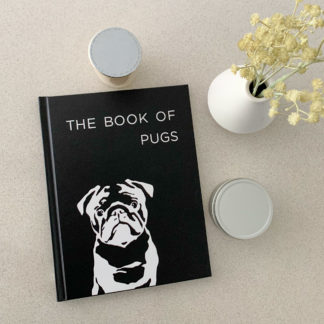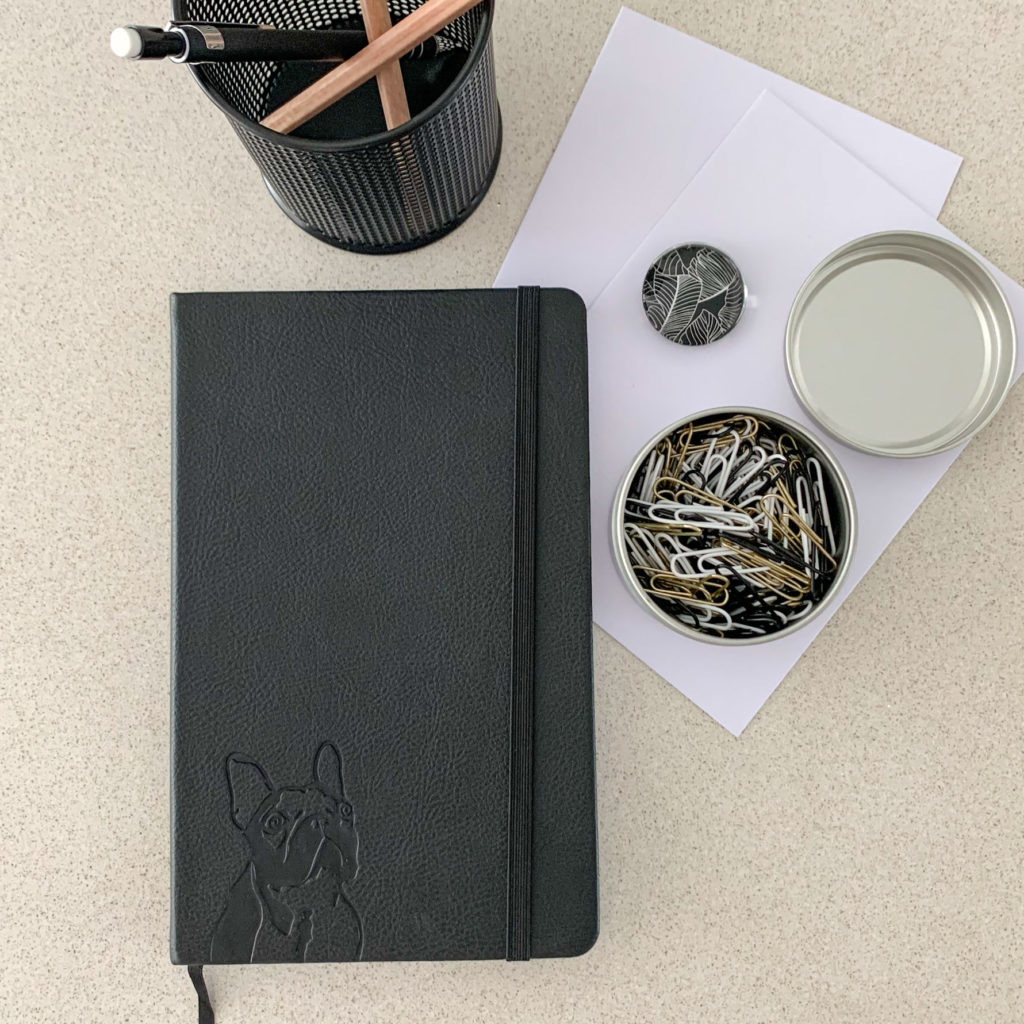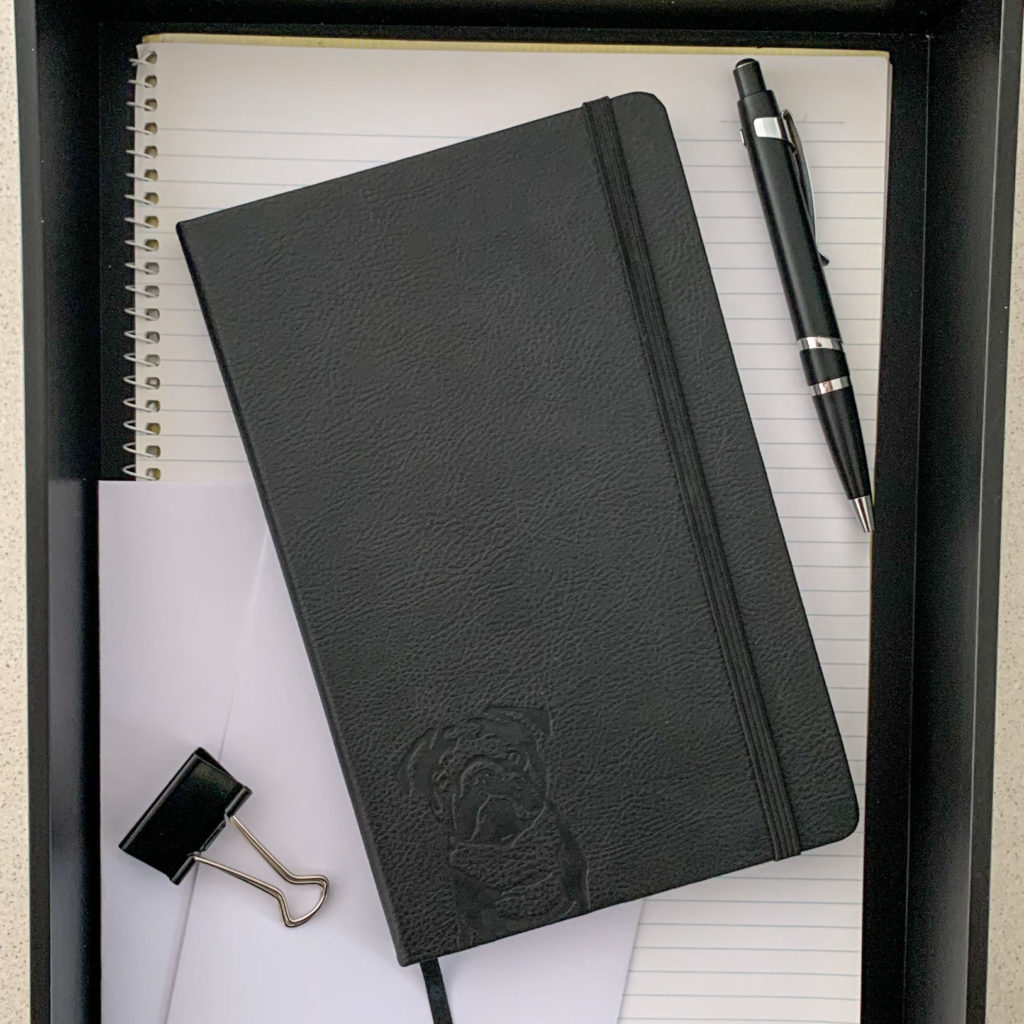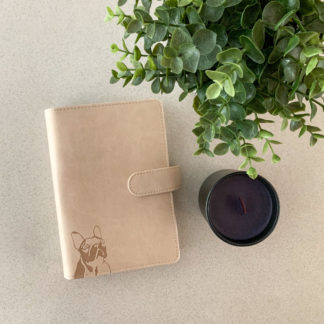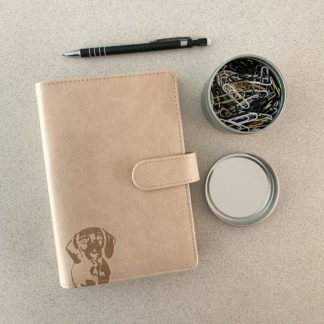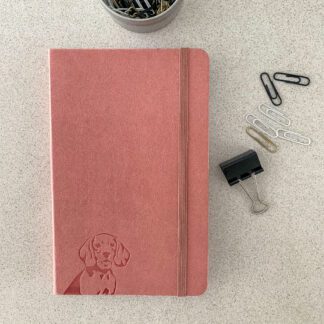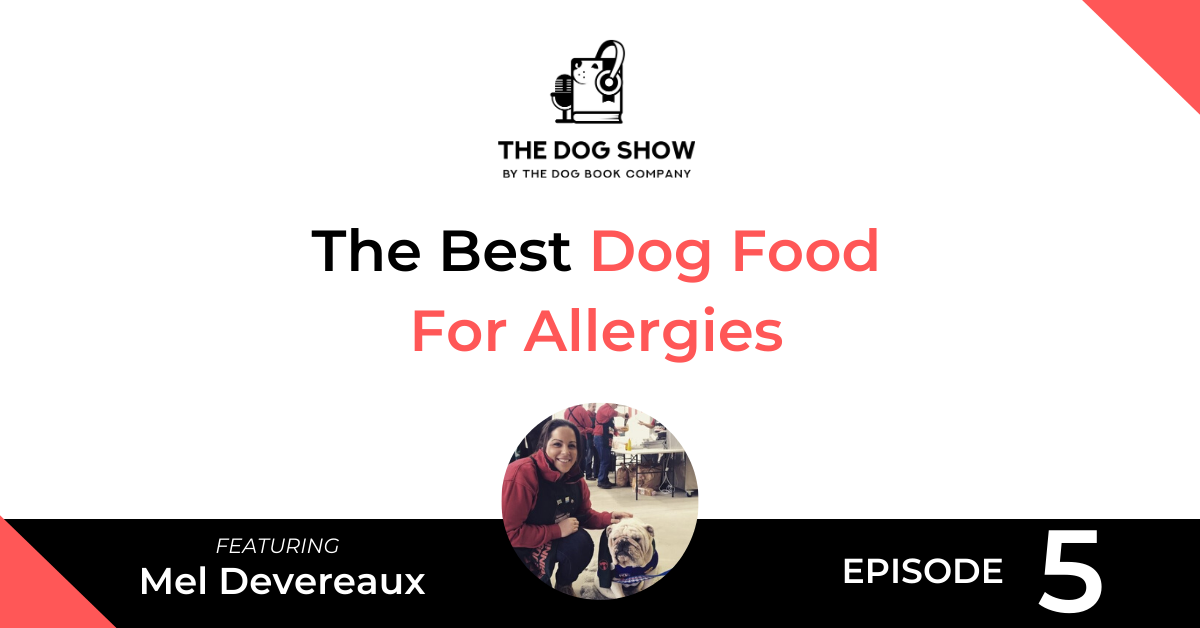
What is the best dog food for allergies?
That’s a question I’ve asked myself numerous times as the owner of a French Bulldog who has both environmental and food-related allergies.
Well, in the latest episode of The Dog Show, I asked an expert – Mel Devereaux.
Mel’s the founder of Australian dog treats brand Laila and Me. All of Laila and Me’s treats are made in small batches from quality Australian meat and produce with no additives, preservatives, salt, or sugar.
Mel started making dog treats as a way of helping her French Bulldog, Laila, deal with food-related allergies.
In the interview, we discuss the ingredients that go into dog treats, some common causes for dog allergies, and how Mel handled Laila’s allergies with a smart approach to food choices.
Join the Laila and Me Pack on Facebook, connect with Mel and Laila on Instagram, and check out Laila and Me’s treats on their website.
Listen
Read
Will: Mel, thanks so much for coming on the call today and being on the podcast.
Mel: Yeah, thanks for having me, excited.
Will: Just to kick things off, your whole business has actually revolved around Laila, your French Bulldog. But, do you wanna just give me a bit of a history of how you’ve been with dogs in the past, and tell me a bit more about Laila.
Mel: Yeah, absolutely. So, Laila is six, she’s actually six next week I think, on April Fool’s Day. So, she, being a Frenchie was just allergy-prone. So, when she was probably about six to eight months, we started noticing massive rashes on her belly and hide and everything. It turned out that she had contact allergies with grass, but we weren’t aware of that until we started doing a food elimination diet. So I started to kind of like treat Laila, and I kept going into the pet shop to buy treats. But because she was on a food elimination diet, she could only have a one-protein treat. Then I started noticing all these treats have a whole lot of other crap in them that don’t really need to be there, so I started making her own treats. That’s how it kinda kicked off. I started making them and telling her story and then people started buying her treats. So, that’s how the business kind of evolved, so yeah, it did evolve around Laila and yeah, it’s probably about four or five years old now the business.
Will: Okay, so just taking a step back quickly, like how did you first decide to get a French bulldog?
Mel: I just love the look…honestly, I love them most. I liked to watch YouTube videos of Frenchies and they just sort of cracked me up. And I was like, “These are really cute dogs.” I was like, “Ah, and they don’t need much exercise and they’re lazy and this is like a perfect dog.” And then I got her, and she was sassy and she is high-energy, and I was like, “This is not the dog that I signed up for.” But I just love them, they’re just the best.
Will: Yeah, their personalities are the best, I think, as well, so.
Mel: Oh, 100%.
Will: I’m a bit the same though, I thought we were signing up…I’ve got a Frenchie as well. I thought we were signing up for a lazy dog, and it’s the complete opposite.
Mel: Yeah, I know, I was like, “Why? Go to sleep.” I think we need to get a greyhound as the next dog. I think they’re like the lazy sort of animals that we want.
Will: Yeah. Is there an interesting fact about Frenchies or about Laila that you could share with the listeners?
Mel: Well, I’m not sure about your Frenchie, Frankie, but Laila is really sensitive. So, she’s like really bossy and sassy, she’s a kind of little dictator and thinks she’s the boss, but when I tell her off, she gets really, really insulted. Like she’ll go straight to her crate and then just ignore me for hours. I thought, “Oh, she’s very sensitive. “
Will: That’s exactly like Frankie, actually. She goes and hides under a chair if you raise your voice at all.
Mel: Well, yeah, and then sulks at you. It’s like, “Oh, excuse me.” Yeah. They’re very sensitive, I love them.
Will: It’s hard to stay angry at them for very long though, isn’t it?
Mel: I know. But I think they play us though; I think that’s part of their DNA.
Will: Yeah, definitely, definitely. Cool, so that’s probably enough about dogs and Frenchies for now. I guess, what you said there was the reason you got into the dog treats industry was because Laila was having some issues with allergies and the ingredients that were in other dog treats. So, why do you think it’s important for owners to be aware of those ingredients and what are some of the implications of not knowing what’s in the treats they buy?
Mel: Well, because I think it comes down to you not knowing what you’re giving your dog. So, food is really medicine for us and for dogs. So if they’re not eating a species-appropriate diet, it can be causing them a lot of underlying health issues. There’s some like shocking things that go into treats and kibbles that just don’t need to be there. You could be like adding fillers, like causing allergies, so it’s hard to diagnose what the actual issue is. Your dog could be allergic to one of the fillers and not the actual protein, but because there’s so much crap that’s in the treat, or in the kibbles that doesn’t need to be there, it’s like…it’s hard. It could be causing weight issues, digestion issues, all sorts of underlying problems.
Will: Okay, so I guess that’s why, because of the mix of ingredients, that’s why you said you had to do an elimination diet, to try and figure out…because you’ve got to really cut it back to the bare basics, don’t you, to figure it out?
Mel: Yeah. Absolutely and that was the issue. That’s why I started with the chicken. I started doing the chicken jerky for Laila and it was just chicken breast, and it was…I didn’t have a dehydrator back then, so it was airdried in the oven for like, you know, a few hours. And then it’s like, “Okay, she’s okay with chicken because it’s one protein and she’s not having any issues.” But yeah, as I said, you go to the pet shop and it’s like glycerin, like all this other stuff, that’s a filler or an additive into their food. And yeah, people may not necessarily be aware of the…what ingredients are in their dogs’ food.
Will: Yeah, okay, are there any other red flags that you know of in treats that people could look out for?
Mel: Yeah, absolutely. So, I think that the main issue is if you can’t identify the ingredients, you probably need to google it because that’s what’s gonna be quite shocking for you. So, for example, in some treats like kibbles, it might be chicken by-products. But what they don’t know is…well, you think, “Chicken by-products? Chicken’s great.” But they’re throwing in the whole chicken, it’s rendered down, so you’re having like the feet, the skin, the fur which, if it were fresh would probably be okay, but you’ve gotta remember that this is probably from like chickens pumped with antibiotics, pumped with diseases, and they’re kind of just rendered in…rendered at high temperatures to kill off all of the bacteria, and then made into a chicken treat.
Like, there are some ingredients there that really surprised me with Laila’s kibble, when I first started feeding her kibble. Obviously, I won’t name brands or anything, but you’d think that, you know, the premium kibble…so you look at some of the ingredients, to me, as far as powdered sawdust, and that’s like an additive to keep your dog fuller for longer. But again, your dog’s not going to be able to digest sawdust, so.
I think you also need to check where the treats are being manufactured. So, like Australia and New Zealand have like a…be it your treats and your meats, or anything else can pass through Australian and New Zealand because we’ve got the same quarantine and customs laws. But if they’re coming from anywhere else, like Asia, or anywhere else, the meat has to be irrigated, like sprayed with chemicals before it can pass into Australia. So, yeah, that’s another reason. We just need to make sure, I think if it’s manufactured in Asia, I’d probably be keeping clear. If none of the ingredients are familiar to you, I think that yeah, you should just be googling them. I think you’d be surprised at what they put in because it’s unregulated, it’s an unregulated industry, you see.
Will: Yeah, I’ve heard that the regulation in the pet industry is so far behind human-grade food and stuff like that, yeah.
Mel: Yeah, absolutely. And I mean, treats don’t need to contain a whole heap of fillers and binders and all artificial ingredients. And I think people, like, other companies, say that, “Oh, yeah, they do to keep them shelf-stable,” but they don’t. So we’ve now got a freeze-dried range and our freeze-dried range is…well, we have approval for about 20 years. It’s just the way that you process it. You know, you don’t need additives, all of our treats are single protein. And they’ve either been dehydrated, and they can last up to three years, or they’re freeze-dried and they can last up to 20 years in the right storage conditions.
Will: Oh, wow. Yeah, that’s much longer than I imagined.
Mel: I know, I don’t think…I would never write 20 years on the packaging. People would just freak out. So, yeah.
Will: “Use by 2041.”
Mel: Yeah, can you just imagine, they’ll be like, “Is this a typo?”
Will: So, I think you’ve kind of mentioned it in passing, but what are some of the ingredients that dog treats might have which have a tendency to cause allergies in dogs?
Mel: Again, your dog can have like an allergy to any of the fillers or stuff like that, but usually from my experience, it’s either gonna be like a food allergy like a protein allergy, which dairy, beef, or chicken seem to be the real offenders. Again, but some people may also thing, “Oh, no, my dog’s allergic to that.” So, your dogs are actually not allergic to that. They might have a food sensitivity and not an allergy. So, a lot of my customers are like, “Oh, my dog can’t have kangaroo, because they’re allergic,” when like, kangaroo naturally is a hypoallergenic meat. So it generally is not an allergy that they’re experiencing, it’s more a sensitivity. So, it could be a little bit too rich or they’ve gotten a bit of a digestive issue. So with stuff like that you really need to work out, is it a sensitivity, is it an allergy, is it an environmental allergy, or is it a food allergy? Like, there’s so many issues there.
Will: Yeah. It’s interesting that you say like Laila was good with the chicken, because Frankie also has allergies as well, and we were going through the process of home cooking her meals to try and identify what the problems were, and chicken was… And you might be right, I never thought of it this way, I always assumed it was an allergy to the chicken protein, but it may have been a sensitivity because she was being sick all the time from that. And kangaroo has been the one meat that we’ve landed on which actually sits well with her, so.
Mel: Yeah, it’s interesting. So, kangaroo…like, yeah, some of my customers love kangaroo because their dog can digest it well and they go really well on it, and then some of my customers are like, “Oh, no, we’re gonna stay right away from that.” So, Laila had a contact environmental allergy, so when we did the elimination diet, we were like, “Okay, so she’s not allergic to any protein, it’s the grass.” And it was only a certain type of grass that she’s allergic to, but in that time…and she’d have the occasional flare-up every now and then, but we’re climbing on top of it. But when she does have that flare-up, we do avoid the warming meats like chicken or beef. Because there’s warming proteins, cooling proteins, and neutral proteins. So if a dog is experiencing allergies, they’re already itchy, they’re already hot, and if you give them some warming protein, it’s gonna warm the blood a little bit more and it’s gonna make your dog more itchy. So, while she’s not allergic to chicken and beef, we will like, just don’t go near chicken and beef when she has one of these flare-ups if that makes sense.
Will: Okay, no, yeah that’s interesting. Just out of…this is probably a bit left field. But do you use any medication or anything to manage her allergies as well as the diet?
Mel: Yeah, so we’ve had her allergies under control for a very long time, and also we moved, and we don’t have the grass here that she’s allergic to. But so if she has a flare-up and we can’t control it in a couple of days with a medicated wash, then I will start her on a course of steroids, but I’m also very mindful that those are…like, if you do give your dog steroids for like five days in a row, it’s not advised because then it starts like impacting the liver, so if I have to give her two or three steroids, she’s cleared up, good to go again. So, yeah, she’s got a course of steroids here that I can crack open if I need to.
Will: Just for emergencies, I…when it’s really bad.
Mel: Yeah, because you don’t want to see your dog in pain or itchy and stuff like that. But, yeah, you’ve just gotta be mindful and follow the vet’s advice on that. But do you know what, I’ve got a little hack for you. So do you use the Malaseb wash on Frankie, you know that medicated wash?
Will: Ah, the medicated, yeah, like shampoo wash, yeah.
Mel: Yeah, so we…I was sick of bathing her every day, I was like, “This is ridiculous.” So I got some unscented baby wipes and I squirted the whole bottle of shampoo in the baby wipes, and every time she’d come in from outside I just wiped her down with that. And it tends to work. I was like, “Yeah, this is good. “
Will: That’s cool, that’s actually a trick we might try. Because we actually used the baby wipes as well, the unscented ones, just as a bit of a dry bath kind of thing, more regularly, on the…yeah.
Mel: Yeah, get that wash and I mean you can just get it from the pet shop. Squirt the whole bottle in there and just wipe them down, like after a walk or…yeah.
Will: One thing that I found with allergies which was just a side effect, or I guess like a lead-on effect from the scratching and the itching and everything. like if they do it too much then it can cause other issues like infections in their ears and infections elsewhere, which is just horrible and it can get really bad and out of control.
Mel: Yeah, that’s it, because their immune system’s just taking a beating and then that’s the last thing. It kind of just snowballs and then they’ve got digestive issues. Yeah, It’s a nightmare, that’s how I see it. That’s it, once we start to feed her…we can tell with her, she starts with the paw lick and the paw-licking at 3:00 in the morning, it’s just like, “Oh, my god.” But it’s at that point we take her off like all the chicken, the beef and then we start the Malaseb wash and the steroids then, so.
Will: Sometimes they’re a bit tricky like that though. I swear Frankie licks at 3:00 a.m. in the morning because she wants to come on the bed sometimes.
Mel: She’s playing you.
Will: Yeah, she’s playing me, for sure. Are there any mistakes you made when you were first choosing treats or choosing food for Laila, that you’ve learnt from and that you could recommend other owners to watch out for?
Mel: Oh, yeah. Absolutely. You want your dog to have a natural diet and then you go into a pet shop…and this is what shocked me. This is what prompted me to start my business, that you would go, “Ah, I’m buying a natural treat, it says natural on there,” but it’s definitely not. So like a prime example of that is rawhide. And I’m not sure if you followed my Instagram…like I campaigned so hard against rawhide because it is vile, vile stuff. So you walk into the pet shop and it says, “All-natural rawhide.” And it’s like this could not be any further from the truth, this is probably the worst “natural” treat. It’s not even a by-product of beef, like rawhide’s a by-product of leather. Like they chemically bathe it in bleach and formaldehyde to like get rid of the fur and to chemically preserve it and then they’re spraying it with coloring to make it look natural because you’ve just bleached the treat white, so no one’s going to think it’s a natural treat being white. And then they spray fat on it to make it palatable for the dog. And so it looks like, you know [crosstalk 00:14:42]
Will: It sounds horrible, just the process.
Mel: It is. It is a shocking process, but then it’s like “all-natural rawhide”. It’s like, “No, it’s not.” So yeah, it’s like, I think that’s a huge mistake, and I’ve made that mistake. So when you’re buying treats, you don’t trust the packaging because it’s all marketing. Look at the back on the ingredients. If you don’t identify any of these ingredients, like google it. Absolutely google and make sure you’re buying Australian or New Zealand treats.
Will: Yeah, I can imagine that words like “natural” and stuff can be quite misleading if the regulation’s not high in the industry.
Mel: Ah, absolutely, yeah.
Will: And maybe you’ve just answered this question, then with the rawhide comment because it sounds like that’s something you’re quite passionate about, and it’s a big issue. But if there was one thing that listeners could take away from the interview today, what do you think that would be?
Mel: Yeah, definitely educating yourself on what is in what you’re feeding your dog with, whether it’s kibble or treats, yeah, exactly. I can’t stress it enough, you just need to google like what you’re feeding your dog because there could be the underlying issue as well. So there’s a couple of like…have you seen that documentary, “Pet Fooled” on Netflix?
Will: No, I haven’t watched that one.
Mel: Oh, you should watch…anyone should watch that one because I think that you would be googling everything that your dog ingests.
Will: Yeah, okay.
Mel: It’s just shocking. So, yeah, it’s just educating yourself, because I think you’ll be quite…you’ll be wanting the industry to be regulated after that, trust me, it’s really bad.
Will: Yeah. What was the name of the documentary, sorry?
Mel: It’s called “Pet Fooled.” And also there’s a good website…so Dana Scott runs “Dogs Naturally,” and she’s Canadian. But she is all about like the raw feeding and just like dog’s well-being. So you can jump on that website and also join her mailing list, and she has a wealth of information just on any topic, like, food, allergies, raw feeding, titer testing, vaccination, everything. Yeah, it’s just something onto…and just educating yourself. So where you can get that free kind of content, trustworthy content…you know what we’re putting in our bodies, but we need to be mindful of what our pets are eating as well.
Will: That’s cool, I’ll share the link to that one in the show notes, as well as the documentary as well, so people can find it. I was just actually intrigued to ask about a couple of the treats that you have with Laila and Me.
Mel: Yeah, sure.
Will: And how you decided to create these ones. So, most specifically the Cow Nose and the Crocodile Foot. I’m just like, how did you decide that you would go down the path to discover these treats or create these treats?
Mel: So, yeah, I always like to push the envelope a little bit, but again, crocodile is a great protein for dogs on food elimination diets and allergies, because it’s such a novel protein to go for. Your dog hasn’t had an opportunity to be exposed or be allergic to it. So crocodile, obviously, is quite hard to get so we take anything from the crocodile that’s not used for human-grade consumption. So, like the skin will go to like handbags and shoes, and stuff like that. The meat will go to restaurants and we just take the rest, the bones, the feet, the tail, anything we can kind of get.
Will: Okay.
Mel: So, it’s good for dogs that, yeah, have allergies, because it’s a hypoallergenic meat. And then the Cow Nose…we’ve got a nose-to-tail philosophy here where, like, if an animal’s going to be killed for human consumption, I don’t like the fact that half of it is just wasted when dogs can be getting so many nutritional benefits out of it. So that’s…those noses and stuff are full of gristle and cartilage and stuff like that, which is good for the dog. It is confronting [inaudible 00:18:22] but it’s being well-received, like, yeah.
Will: When you explain it like that, it does make a whole lot of sense, actually.
Mel: Yeah, so yeah, it’s the shock factor I think. Once they get over that…trust me, it took me a long time to get over that, “Oh, my gosh, this is a cow’s face.” And it had the whiskers and everything on it, and I was like, “Oh, my god.” And then Laila, I gave it to her, and she loved it and I was like, “Oh.” And that was a good chew treat and the fur is really good for their digestive system, like it gives their digestive system a really good clean out, so.
Will: I’m just kind of visualizing my dog eating that, and having it stick out of her mouth. That’s the confronting part, I think.
Mel: Absolutely, and then they have really hairy poo, so you’re like, “Oh.” Yeah, it’s an out-there treat. But again, they take quite a long time to get through the cow’s nose and the cow’s ears with fur. Yeah, it gives them a good clean out, but also it keeps them entertained for a while, with great enrichment.
Will: Yeah, cool, nice distraction. Because we’re always looking for new distractions.
Mel: That’s it, that’s it.
Will: Well, thanks so much for sharing all that info, some great stuff in there for the listeners, and for me actually, personally, to take away. Where can people find out more about yourself and Laila and Me?
Mel: So, I’ve got a website, lailaandme.com.au, so that’s where I sell all of my treats. But I like to keep really engaged in building the community, so I’ve got like my Instagram, so laila.and.me, or you can join me on Facebook, I’ve got a Facebook group, The Laila And Me Pack, where we just kind of like…yeah, we just talk, we just engage with each other. Yeah, I really love to talk, and I love to educate people, and I just love to hear peoples’ thoughts and feelings and concerns about the pet industry, so keep it all relevant.
Will: Great, yeah, I actually found you on Instagram, so.
Mel: Oh, nice.
Will: Noticed the cool stuff there. But I’ll definitely share the Instagram handle, the website, and the Facebook group with the show notes too.
Mel: Yeah, sounds good.
Will: Perfect. Yeah, well, thanks again for today. It’s a crazy time in the world at the moment, but, you know, I appreciate you coming on the call and sharing all those helpful tips for dog owners.
Mel: Yeah, thanks for having me.
From Our Store
-
French Bulldog Coffee Table Book – The Book of Frenchies
From: CAD $53.81 Add to cart -
Dachshund Coffee Table Book – The Book of Dachshunds
From: CAD $53.81 Add to cart -
Pug Coffee Table Book – The Book of Pugs
CAD $53.81 Add to cart -
French Bulldog Notebook – A5, Hardcover, PU Leather, 100gsm Lined Pages, Bookmark (Three Colours)
CAD $31.39 Select options -
Dachshund Notebook – A5, Hardcover, PU Leather, 100gsm Lined Pages, Bookmark (Three Colours)
CAD $31.39 Select options -
Pug Notebook – A5, Hardcover, Black PU Leather, 100gsm Lined Pages, Bookmark (Three Colours)
CAD $31.39 Select options -
French Bulldog Planner – PU Leather Exterior, Metal Loose Leaf Ring Binder, 100gsm Paper (Two Colours)
CAD $58.30 Select options -
Corgi Notebook – A5, Hardcover, Black PU Leather, 100gsm Lined Pages, Bookmark (Three Colours)
CAD $31.39 Select options -
Dachshund Planner – PU Leather Exterior, Metal Loose Leaf Ring Binder, 100gsm Paper (Two Colours)
CAD $58.30 Select options -
Vizsla/Weimaraner Notebook – A5, Hardcover, PU Leather, 100gsm Lined Pages, Bookmark (Three Colours)
CAD $31.39 Select options -
Cavoodle Notebook – A5, Hardcover, Black PU Leather, 100gsm Lined Pages, Bookmark (Three Colours)
CAD $31.39 Select options -
Beagle Notebook – A5, Hardcover, PU Leather, 100gsm Lined Pages, Bookmark (Three Colours)
CAD $31.39 Select options



